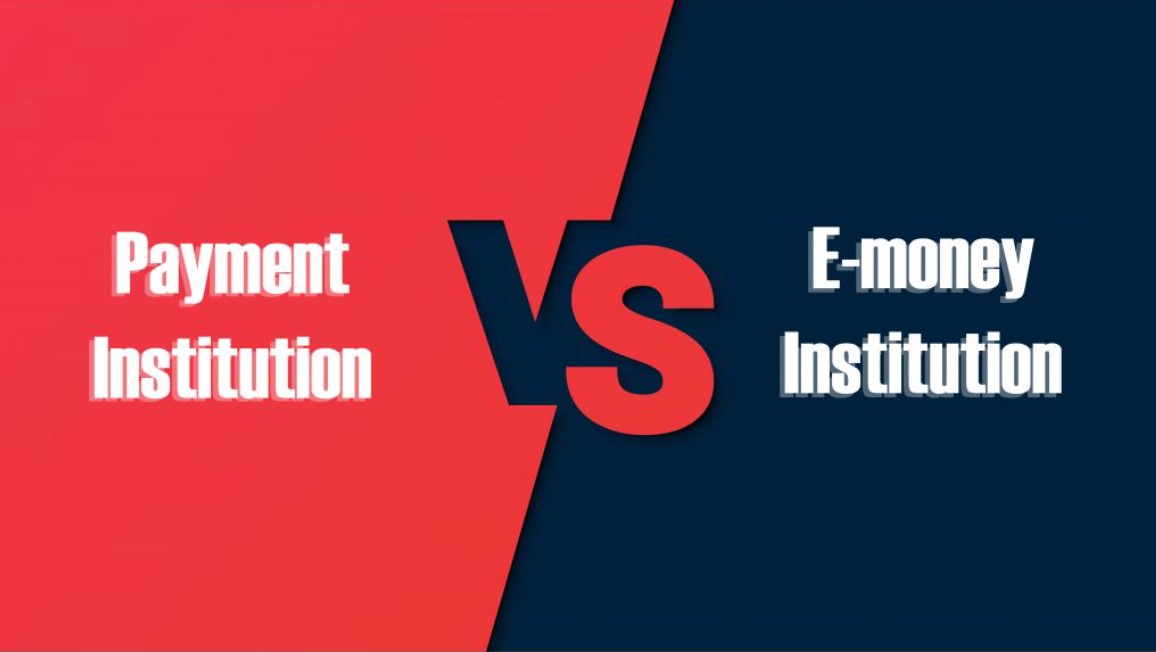Difference Between EMI And API In The UK/EU Countries

E-money is a relatively new type of payment instrument that has emerged due to the development of new technologies. They have become incredibly popular due to a variety of factors, including the growing difficulty of opening current accounts and obtaining bank cards, as well as the rapid development of digital technologies.
E-money helps to satisfy a lot of needs of all customers. The main types of financial companies include the authorized payment company API (Authorized Payment Institution) and the issuer of e-money EMI (Electronic Money Institution). Therefore, before licensing an enterprise, it is important to learn to distinguish between these concepts.
Our industry is experienced experts in the field of establishment and licensing of commercial structures across the globe. Our team of professionals operates in different directions, including helping to establish and develop EMI/API projects.
Definition And Characteristics Of EMI
Before obtaining an e-money license, it will be useful for you to know that e-money is a digital type of fiat money, as they have many similar characteristics. Simply put, it’s just money that is stored electronically, used for payments, and can be accepted by companies and individuals who are not the issuer of e-money.
It is important to note that such money is different from cryptographic currencies. E-money is money that is stored in electronic form. Central banks control them. Cryptocurrencies are non-monetary units that apply decentralized governance.
Permitted Activities Of EMIs
Payment companies differ from the issuer of e-money in that electronic money institutions can additionally issue money. The regulation of any of such providers is also different:
- Payment institutions are controlled by PDS2 (Directive 2015/2336/EU);
- e-money is controlled by the EMI Directive (Directive 2009/110/EC).
E-money is comparable to electronic payment instruments that operate within the same EMI company:
- Clients must open separate accounts, which are similar to a regular bank account;
- To replenish the account, EMI acquires fiat funds from its clients and deposits electronic funds into their accounts;
- Between clients in the company, the settlement takes place in the electronic money of the company;
- Certain types of prepaid cards are regarded by regulatory authorities as E-money.
It is important not to confuse the name of E-money and cryptocurrencies because government agencies do not regulate cryptocurrencies as means of payment and are not considered money as per the laws of any country.
Licensing Requirements In the UK And Europe
To organize electronic money, you must have a starting capital of 350 thousand euros. And for the API, it’s from 20 thousand euros (if you deal only with transfers of funds) to 125 thousand euros. The operation of any company associated with financial instruments must comply with the following requirements:
- Directive PSD2;
- Regulations on preventing the legalization of proceeds from crime, the financing of terrorist acts, and the transfer of money.
The Most Popular Types Of Licenses For Processing Companies In The UK And Europe
Today, EU companies are queuing up to receive API and EMI licenses. These are the two most popular types of licenses, but in order to choose the license that suits you, always compare all the terms and conditions. Most of the terms of these licenses are similar, but there are also some differences.
An API is a type of license that allows businesses to provide financial intermediation services outside of Internet businesses:
- Accounts opening;
- Provision of service range for account replenishment in third-party payment systems;
- Withdrawal of funds from the accounts of individuals and legal entities;
- Conducting various payment transactions between customer accounts;
- Making a money transfer;
- Manage third-party payment instruments, etc.
An enterprise wishing to obtain a license of this type must be registered in the state that issues the API license. The initial capital required to obtain this license is 125,000 euros. It is this or a large amount that must appear on a bank account opened in the same country in which the bank wants to obtain a license. The amount of initial capital has the freedom to be increased at the discretion of the supervisory authority after a detailed study of the company’s business plan.
Comparative Analysis Of EMI Vs. API: What Is The Main Difference?
EMI provides the same service list as API, but the main difference between these institutions is that EMI has the right to issue electronic money, prepaid cards, or electronic wallets. EMI has high initial capital requirements set at more than 350,000 euros.
EMI or e-Wallet license allows you to issue electronic currency. The issued money can also be used through the payment system of this bank, and it can also be converted into any other currency. Having an EMI license, the company actually becomes a bank that has the right to create electronic wallets but not the right to issue loans. API and EMI licenses are generally accepted in the EU, but the rules and conditions for obtaining them may differ in each country.
Let us consider in more detail the most common questions about payment companies and the issuer of electronic money.
EMI Makes Opening E-Wallets Ethical, But The API Does Not?
In fact, there is no concept of “electronic wallet” in the field of payments. This is a payment account that can be opened both in the issuer of electronic money and in the payment organization.
Can Prepaid Cards Be Issued In Both Forms Of Companies?
The sole right to issue a physical payment card is the Card Issuer and a full member of Visa or Mastercard (or other payment systems). Both the issuer and the payment institution are authorized to issue no-branded prepaid cards. The Card Issuer issues such a card under the EMI or API logo. The issuance and storage of electronic money on this card has the right to produce exclusively EMI.
Is It True That The Process Of Applying For An EMI License Is More Complicated Than With An API?
Both of these processes are almost identical, but the preparation of documents for an e-money issuer license usually takes more time as regulators scrutinize these companies more carefully.
Is It True That Banks Consider E-Money Issuers To Be More Reliable Partners?
If we compare the issuer of e-money with a payment institution, then the former must have a huge capital to start and a more thorough check in order to obtain a license. It is for these reasons that banks predominantly work with EMI and not with API.
Is It Possible To Change The API License To EMI?
Changing the type of license is possible if you prove that it is necessary. To do this, you will need to prepare all documents and conduct an audit. Please note that the main feature of the EMI license is a starting capital of more than 350,000 euros.
Conclusion
Summing up the article, we can say that the main difference between licenses is the business idea, budget, and who your customers are. By taking into account these differences, you will be able to determine exactly which license suits you best. If you have not been able to do it yourself, then our experts will help you make the right and best alternative for you.
Read Also:


























